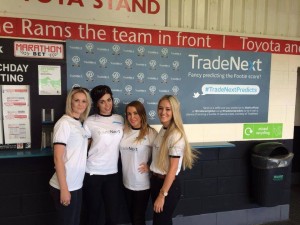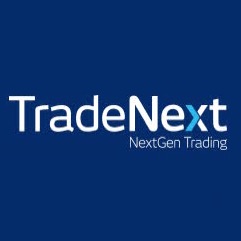Forex Magnates spoke with John Evans, creative director at TradeNext, for his perspective and rationale surrounding football sponsorships and their embrace by FX brokers. His interview can be read in full below.
1. What is the rationale behind football or general sponsorship deals how do companies successfully implement them?
As far as I am concerned, there are four key factors to consider when exploring any potential sponsorship.
- Does the sponsorship fit with our target demographics?
- Does the sponsorship offer a holistic package (i.e. offline/online/access to client base)?
- Will workload compromise existing projects and campaigns?
- Are the costs justified?
If the criteria above are met, then there is a case for exploring the sponsorship opportunities and if/how they can extend the current Marketing operations.
Once this has been completed, and if the sponsorship is still looking like a good prospect, then I will take time to plan an operational procedure to maximize the sponsorship from our side.
One of the most important aspects of any sponsorship deal is that spending does not stop at the sponsorship. Additional costs need to be assigned to properly exploit the sponsorship. That’s the mistake many make, they assume the sponsorship deal in itself will draw more awareness or sales. I believe the sponsorship provides the platform to build a campaign.
The key to successfully implementing the sponsorship is planning. We have to ensure that the sponsorship can be maximized, while not compromising existing activity and projects, so the road map is essential. Another important factor is the timing of the activation. Different sponsors lend themselves to different key dates through any calendar year, which can be exploited more than others.
2. What parameters (measurable or not measurable) do brokers use to determine success for sponsorship deals?
In my experience there are two key parameters. The first being the additional reach that can be gained by the sponsorship. With any new sponsorship, ideally it needs to give the brand access and cut-through to a new audience.
The second parameter is whether there is a profit to be made. And by this I mean in the mid-to-long term. Focusing on short-term returns with any sponsorship is a risky strategy, for a multitude of reasons (not least because the short-term costs of activating any sponsorship are always the most intensive).
I always measure reach first, so as to be able to gauge if the reach percentage ratio is in-line with new business percentage ratio as a result of the sponsorship. It can often be the case that reach improves dramatically, but profits do not, so a correlation between the two is fundamental.
The other reason why reach is measured first is because that always has a quicker pick up than the profit margins. Any success can be measured only after the first three months of the sponsorship, so that there is data to benchmark against.
Once we have a gauge to measure the success against, it becomes a relatively simply task of analysing data. It is important to test new initiatives so as to gain a greater understanding of the nuances to the sponsorship – not all activities apply to all sponsorship so you do need to experiment a bit.

3. What amount of level of engagement can brokers expect via sponsorship deals from sports fans?
I can only speak here from personal experience, but I have never entered into a sponsorship agreement without a strong indication of expected ROI. For TradeNext, we have ensured that there are funnels that can be utilized for a dedicated ROI for our core business, but also our secondary and tertiary operations.
There is a striking correlation between sports fan demographics and our traditional client base, which we are leveraging to great effect. Our engagement through tradenextsport.com for example is surpassing our initial expectations at this stage of the sponsorship, as there is appetite for financial information and sports information.

4. Are there any other creative ways or strategies brokers can use to help promote their product?
The short answer is "yes." There are always creative and inventive routes to market with any sponsorship. We have, for example, ensured that our brand messages are used whenever there is a hole in their inventory, which provides very cost-effective cut-through.
Additionally, our social channels have not only gained in presence dramatically since we started the sponsorship, but have also turned into a relevant profit funnel, which can be directly correlated to the sponsorship.
At the end of the day, if a sponsorship is a good proposition, then these creative opportunities should be apparent at the outset while diligence on the sponsorship is being conducted.


















